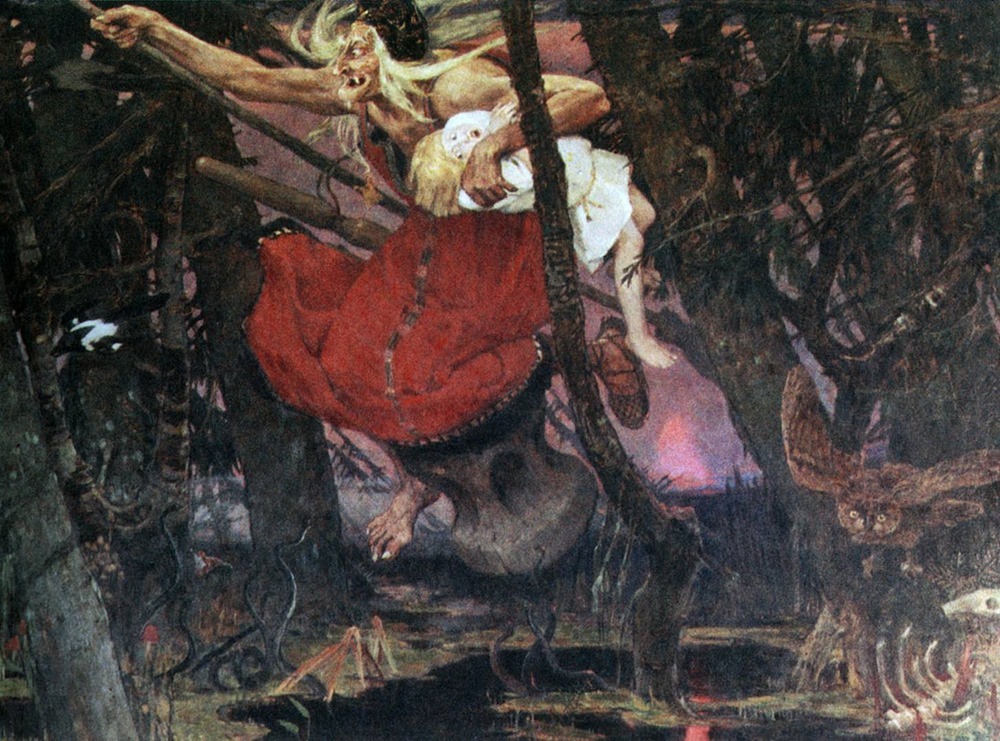NOTMany people in the world hold irrational beliefs. Some are religious, some are superstitions, and some are just things we tell ourselves or cling to for no particular reason. A new study has analyzed one of these irrational beliefs (witchcraft) and found that strikingly large numbers of people in some countries believe in witchcraft. For example, more than half of people in Russia and 90% in Tunisia share these beliefs.
Header image: representation of Baba Yagaa “witch” from Russian fairy tales, by the Russian painter Viktor Vasnetsov (1917).
Witchcraft takes many forms in myth and culture, but it is generally defined as the ability to cause harm to people through supernatural means. Witches can cast spells and curses on individuals and cause bad things to happen to them, and they usually use “dark” magic.
Beliefs in witchcraft have been documented for centuries and are still evident in modern times, but few studies have been done on the prevalence of these beliefs, largely due to the paucity of data on this topic. To address this situation, Boris Gershman of the American University in Washington compiled the largest available dataset on witchcraft investigations, with 140,000 people from 95 countries and territories.
The data set is still very small for a global study, but it is the best information available. The data was collected between 2008 and 2017 during research conducted by the Pew Research Center (USA) and other professional investigative bodies, which included questions about religion and belief in supernatural elements.
The study found that over 40% of respondents said they believe that “some people can cast curses or spells that cause bad things to happen to someone. This means that at least 1 billion people share beliefs in witchcraft, but as many countries were not included in the study, the actual number could be several times higher. For example, there was no data for China and India, which together account for more than a third of the world’s population.
Prevalence varies greatly, from over 90% in parts of Africa to 9% in Sweden. Overall, the average prevalence in the countries studied was 43%.
From the study: beliefs in witchcraft in the world. (Boris Gershman/ PLoS ONE)
From this dataset, Gershman then examined factors that may be associated with beliefs in witchcraft. He found that on average, people with a high level of education and a certain affluence/economic security are less likely to believe in witchcraft. There are also cultural and social factors that correlate with witchcraft. For example, conformist cultures with deficient institutions and low levels of social trust were also linked to higher beliefs in witchcraft.
The authors believe that these beliefs should be taken into account in the development of policies and other social initiatives.
The study concludes:
This research documents that beliefs in witchcraft are still widespread around the world. Furthermore, their prevalence is consistently linked to a number of cultural, institutional, psychological and socioeconomic characteristics.
The study published in PLoS ONE: Witchcraft beliefs around the world: An exploratory analysis.
We would like to give thanks to the author of this write-up for this incredible material
Over a billion people believe in witchcraft, especially in countries with weak institutions – GuruMeditation
You can find our social media profiles , as well as other pages related to it.https://nimblespirit.com/related-pages/


